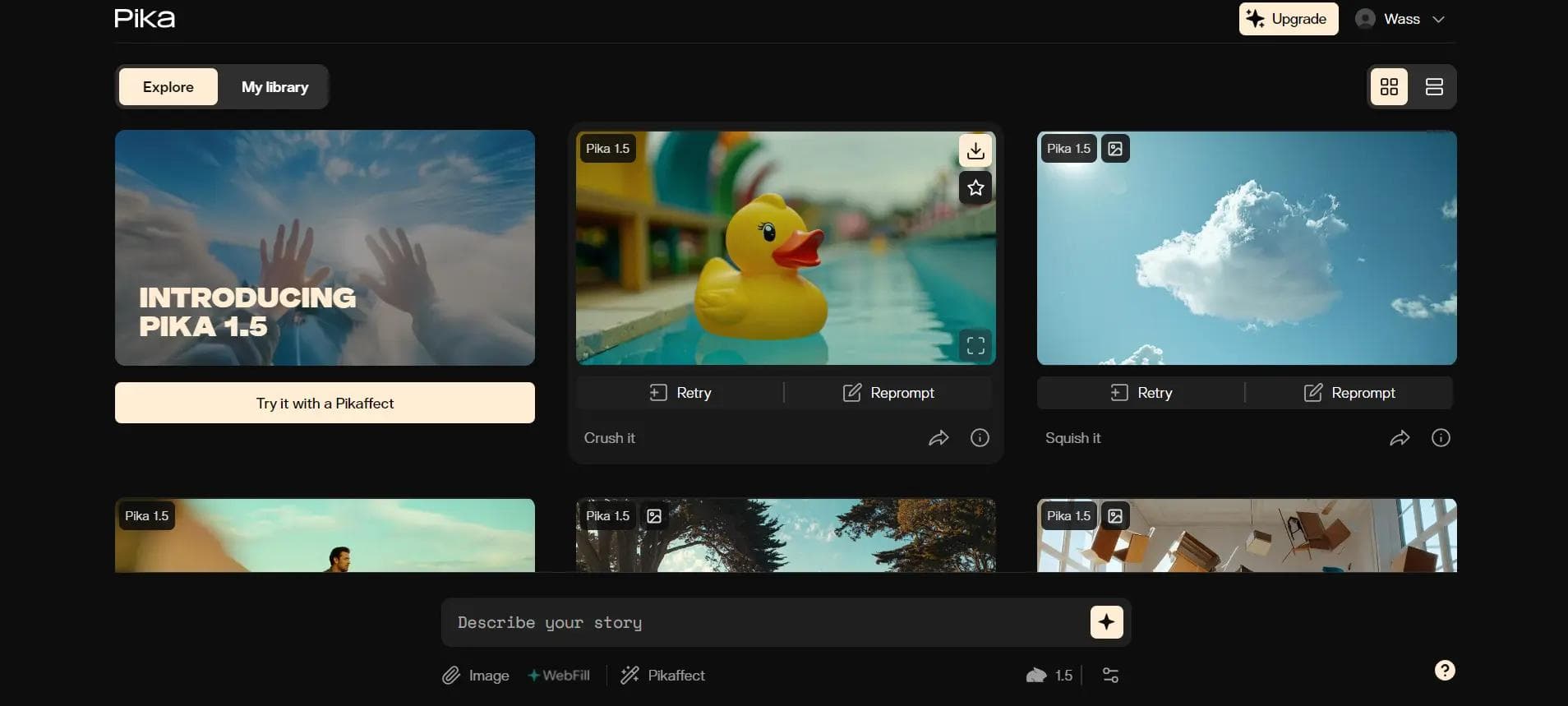November 5, 2024|9 min reading
How AI is Revolutionizing Remote Workforce Management

Remote work has reshaped the modern workplace, and artificial intelligence (AI) is supercharging this transformation. In a landscape where productivity, collaboration, and effective communication are paramount, AI tools are empowering remote teams to work smarter, faster, and more collaboratively than ever. This guide explores how AI is making waves in remote workforce management and why it’s time for remote teams to embrace these advancements.
How AI is Changing the Game for Remote Workforce Management
AI's role in remote workforce management extends far beyond automation; it’s helping remote teams stay efficient, productive, and engaged. Whether it’s scheduling across time zones, improving communication, or providing insights to drive growth, AI tools are making life easier and work smarter for remote teams around the world.
Supercharging Productivity with AI-Powered Automation
Remote work comes with its fair share of repetitive tasks. But AI is helping remote teams automate and streamline processes, saving time and allowing employees to focus on what really matters.
Task Automation
AI-powered tools such as Zapier and Trello’s Butler eliminate repetitive tasks, from simple notifications to complex workflows. These tools can automate everything from data entry to setting up project tasks, freeing up time for more strategic work.
Smart Time Tracking
Tools like Clockify and Toggl leverage AI to track productivity and manage time effectively. With features that provide insights into how time is spent, remote workers can make more informed decisions about how to allocate their work hours and stay on track.
Advanced Data Analysis
Managing remote teams involves handling data from multiple sources. AI-based tools like Google Analytics and Tableau turn raw data into insights, making it easier to measure productivity, identify trends, and set team goals.
Enhancing Collaboration Across Time Zones
Working across continents and time zones can be challenging, but AI-driven tools make global collaboration smoother than ever.
Real-Time Language Translation
Language differences can be a hurdle in global teams, but Microsoft Teams and other platforms now offer real-time translation features. This makes it easy for teams to communicate, regardless of their native language, enhancing understanding and collaboration.
Intelligent Scheduling Assistance
Finding a common meeting time across time zones can be a logistical nightmare. AI tools use smart scheduling to analyze availability and recommend meeting times that work best for everyone. Tools like Calendar and Doodle automate scheduling, making sure that meetings don’t interfere with time zones or personal schedules.
Project Management Support
AI-empowered platforms like Asana and Monday.com keep teams on track, even when members are dispersed worldwide. These tools automate reminders, track project progress, and streamline task assignments, ensuring that projects run smoothly and team members are aligned.
Improving Communication with AI-Powered Tools
Clear and effective communication is the foundation of successful remote work. AI tools are stepping up to ensure everyone stays connected and informed.
Writing Assistance and Tone Analysis
Grammarly and other AI-driven writing tools enhance clarity in messaging, catching errors and improving tone to suit professional settings. This can make a significant difference in preventing misunderstandings or conflicts, ensuring messages are clear and consistent.
Sentiment Analysis for Team Communication
Advanced sentiment analysis tools use AI to gauge the emotional tone in emails, messages, or chat, which can help identify potential conflicts early. By analyzing language and tone, managers can address issues before they escalate, improving team harmony and morale.
Automated Transcriptions
Meetings are crucial in remote work, but taking detailed notes can be cumbersome. AI transcription tools in Zoom and Google Meet offer automatic transcription, so team members can focus on the discussion while AI handles the notes. This feature allows everyone to stay informed without missing any details.
Streamlining Customer Support with AI Chatbots
Customer service is a core element for many remote businesses, and AI-powered chatbots are taking customer interactions to the next level.
24/7 Availability and Instant Responses
Chatbots powered by AI are available around the clock, answering customer questions and guiding them to relevant resources instantly. This constant availability helps companies deliver a better customer experience without overloading human employees.
Lead Generation and Customer Engagement
AI chatbots don’t just handle inquiries; they’re also great at engaging potential customers. By proactively engaging website visitors, chatbots like Intercom’s Custom Bot can gather information, qualify leads, and even help users complete their journey, ultimately contributing to business growth.
Automating Repetitive Support Tasks
For remote support teams, AI-powered chatbots handle common questions and direct customers to the right resources. This automation not only saves time but also allows human agents to focus on more complex customer issues, enhancing efficiency.
Leveraging AI Insights for Innovation and Growth
Beyond automation, AI is giving businesses powerful insights into both customer behavior and internal performance, driving data-driven innovation.
Predictive Analytics for Market Trends
AI-powered analytics can predict future trends by analyzing customer behavior and market data, enabling remote teams to make proactive decisions. With predictive analytics, businesses can prepare for shifts in demand, helping them stay ahead of the competition.
Deep Customer Insights
Understanding customer preferences is key to offering personalized experiences. Tools like HubSpot and Salesforce use AI to provide businesses with detailed insights into customer behavior, preferences, and engagement patterns, which can be used to refine marketing strategies.
Optimizing Talent Management
AI in workforce management also applies to identifying high performers, detecting areas for team development, and suggesting training needs. Platforms like Workday and BambooHR use AI insights to help HR departments make data-informed decisions about employee growth and development.
FAQs
Is AI going to replace human workers?
AI aims to augment human capabilities, not replace them. It's designed to support and empower remote teams by handling repetitive tasks, so team members can focus on high-value work.
How secure is AI in managing sensitive data?
Data privacy is a top concern, and most AI tools use advanced security protocols to protect user information. It’s essential to choose reputable AI tools with strong security measures to ensure data integrity.
Do I need to be tech-savvy to use AI in remote work?
Not at all! Many AI tools are intuitive and user-friendly, making it easy for anyone to get started. You can begin with basic automation and build from there.
Can AI help with employee engagement in remote teams?
Yes, AI can analyze engagement data, provide sentiment analysis, and suggest ways to boost morale. This ensures that remote teams stay motivated and connected.
What are the best AI tools for small remote teams?
For small teams, tools like Slack, Trello, and Google Workspace offer AI-powered features to streamline communication and productivity. Many of these tools have affordable pricing tiers suitable for small businesses.
Can AI really improve productivity?
Absolutely! AI can automate time-consuming tasks, provide productivity insights, and streamline workflows, allowing team members to work more efficiently.
Conclusion
AI is revolutionizing remote workforce management, creating unprecedented opportunities for productivity, collaboration, and growth. With the right AI tools, remote teams can overcome traditional challenges like time zone coordination, communication barriers, and project management roadblocks.
By embracing AI, companies are not only enhancing their operations but also empowering employees to focus on impactful, high-value work. The future of remote work is powered by AI, and for teams willing to harness its potential, the opportunities are limitless. Ready to take your remote workforce to the next level? Start small, experiment, and let AI become an invaluable part of your remote work strategy.
Explore more

Top 10 Essential Productivity Tools for Busy Professionals in 2025
Discover the top 10 productivity tools in 2025, including AI-powered automation and project management apps, to enhance ...

How Quiet Quitting is Shaping Employee Engagement in 2025
Discover how quiet quitting is redefining employee engagement in 2025, and explore actionable solutions for managers to ...

Pika 1.5 Review: The Ultimate AI-Driven Video Editing & Special Effects Tool for Creators
Explore the Pika 1.5 review for creative professionals. Discover its AI-assisted editing features, pros, and cons in thi...
